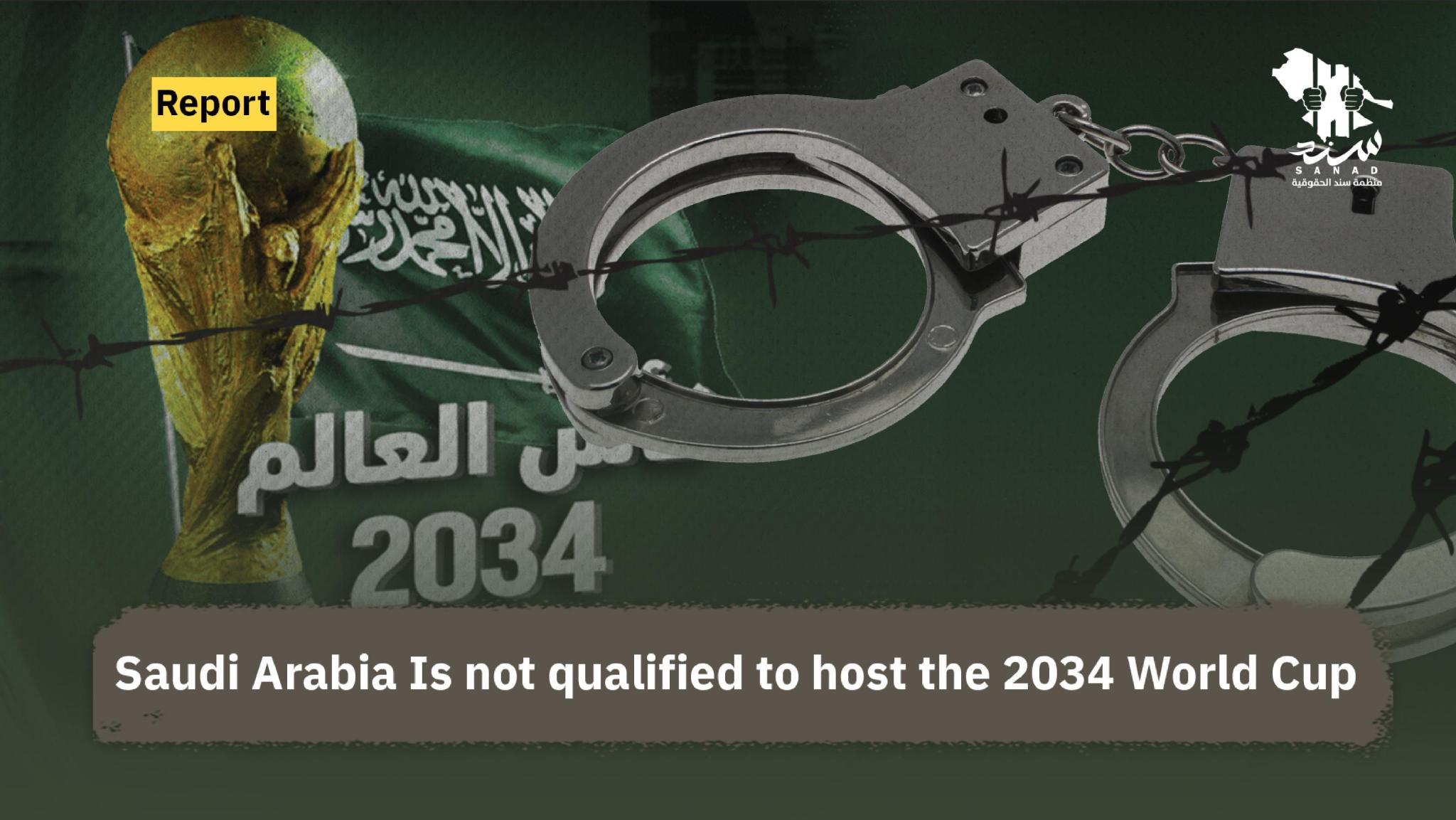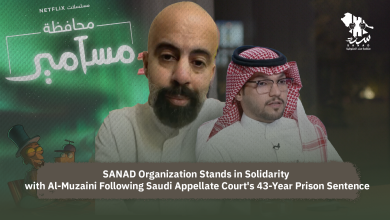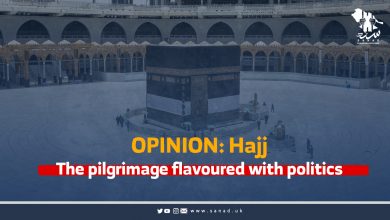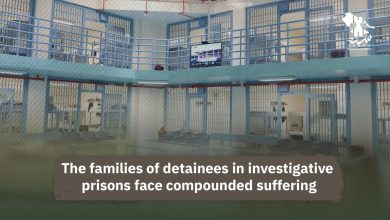
Saudi Arabia Is not qualified to host the 2034 World Cup
Saudi Arabia Is not qualified to host the 2034 World Cup
Hosting the World Cup, the largest global sporting event, requires more than just advanced infrastructure and logistical preparations. It necessitates a firm commitment to human values and fundamental human rights principles. In light of Saudi Arabia’s announcement to host the 2034 World Cup, a pressing question arises about the suitability of this decision, given the country’s dark human rights record that overshadows daily life.
This report aims to shed light on the glaring human rights violations in Saudi Arabia and emphasize that the country is not qualified to host a global sporting event of this magnitude.
The Human Rights Environment in Saudi Arabia
Saudi Arabia suffers from a repressive and fear-filled human rights environment, where basic freedoms are systematically and continuously violated. At the same time, the country engages in sportswashing to whitewash its poor human rights record, alongside implementing superficial social and economic reforms that do not reflect a genuine commitment to human rights principles.
Arbitrary Arrests and Suppression of Freedom of Expression
In Saudi Arabia, free expression is considered an impermissible luxury. Any attempt to criticize the government or its policies is met with harsh reactions, including arrests, unfair trials, and sometimes even enforced disappearances. In extreme cases, governmental repression has led to executions, such as the case of retired teacher Mohammed Al-Ghamdi, before the government retracted the sentence due to intense international pressure. Meanwhile, many detainees continue to face long sentences, like Noura Al-Qahtani, who was sentenced to 45 years in prison for tweets on the platform X. Even upon release, former detainees are subjected to various violations, including travel bans, security monitoring, job dismissals, and other abuses that isolate them from public life.
Violations Inside Prisons
The Saudi authorities detain hundreds of citizens and residents without fair trials—accurate statistics are unavailable due to the lack of governmental transparency. These detainees often face psychological and physical torture in prison, along with harsh and inhumane detention conditions. They are confined in narrow and unsanitary cells, denied access to medical care or contact with their families. In many cases, torture methods are used to extract forced confessions, which are later used to convict them in trials lacking the most basic standards of justice.
Sportswashing
Saudi Arabia seeks to use the hosting of major sporting events and the purchase of players and sports clubs as a means to whitewash its international image—a practice known as sportswashing. By organizing major international tournaments like the World Cup, Saudi Arabia attempts to divert attention from its poor human rights record and strengthen its legitimacy on the global stage. This tactic should not be accepted or encouraged, as it allows repressive regimes to gain propaganda victories at the expense of human rights.
Freedom of the Press
FIFA asserts that freedom of the press is among the criteria that host countries of the World Cup must adhere to. However, this is absent in Saudi Arabia. According to the Press Freedom Index published by Reporters Without Borders, Saudi Arabia ranks near the bottom of the world, occupying the 166th position out of 180 countries evaluated in 2024. The country ranked 170th in 2023 and 166th in 2022. Many journalists remain imprisoned in Saudi jails for many years, including Osama Sahli, Malik Al-Ahmad, Mohammed Al-Sadiq, Sami Al-Thibiti, and Wajdi Al-Ghazzawi, among others.
The Role of the International Community
Accepting Saudi Arabia’s hosting of the 2034 World Cup without considering its human rights record reflects a failure on the part of FIFA and the international community, which bears a moral responsibility to ensure that human rights and fundamental freedoms are integral to the standards for hosting major sporting events. There must be continuous pressure from countries, international organizations, and human rights associations to ensure that Saudi Arabia upholds its international responsibilities and stops its human rights violations.
Amnesty International: Saudi Arabia Does Not Meet Human Rights Standards
Amnesty International, in a statement regarding Saudi Arabia’s bid to host the World Cup, noted that the country has failed to meet FIFA’s human rights requirements in its bid. Amnesty stated that an analysis of the bid shows that Saudi Arabia still fails to commit to implementing radical reforms in its exploitative labor system, or to take any steps to improve freedom of expression, or to end the repression of human rights activists.
Recommendations
The hosting of the 2034 World Cup in Saudi Arabia should be accompanied by pressure on the Saudi authorities to genuinely improve human rights, including:
Forming an International Committee to Monitor Human Rights in Saudi Arabia: FIFA and the international community should establish an independent committee to monitor and investigate human rights violations in Saudi Arabia before, during, and after the World Cup.
Demanding Concrete Improvements in Human Rights: Saudi Arabia should be required to implement real and tangible reforms in the field of human rights as a condition for hosting the World Cup, including the release of all prisoners of conscience, granting citizenship to stateless individuals, ensuring freedom of expression and the press, and securing women’s rights.
Allowing Saudi Arabia to host the 2034 World Cup without addressing these human rights issues would be a setback for human rights and a contribution to sportswashing and the violations experienced by citizens and residents in Saudi Arabia.






